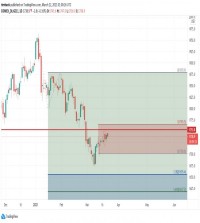
Khaled Kaim Opalesque Industry Update - Rebels have been fighting the 41-year-long regime of the Libyan government of Muammar Qaddafi (or Gaddafi) for three months, and NATO countries became involved – to protect civilian lives and also to protect Gadhafi’s enemies from his forces (according to Statfor) – for two months. So what has happened in Libya most recently? Libyan Deputy Foreign Minister Khaled Kaim said on May 27th that his country was not concerned with decisions made by the G8, after Russia (which is mediating the conflict) joined NATO in calling for Gadhafi's departure, AFP reported. During the G8 summit this week-end, President Barack Obama said the U.S. and France were committed to finishing the job in Libya, said News24. The next day, NATO planes destroyed the guard towers of Gadhafi's Tripoli compound then launched a daytime strike on Tripoli, followed by a fifth consecutive night of NATO airstrikes, reported Reuters. On May 29th, Gadhafi was ready to surrender his power on the condition he and his family are granted immunity from prosecution, according to RIA Novosti. However, there is no official agreement on the issue. And today (May 30th), while Misrata's rebels are still defending the city and blasts are shocking Tripoli, South African President Jacob Zuma arrived in Tripoli to discuss the implementation of the African Union (AU) "roadmap" for peace. Meanwhile, assaulted rebels are asking the international community for humanitarian help.
The $53bn portfolio Many of the assets of the LIA, which has managed Libyan sovereign wealth funds since 2006, are now frozen because of international sanctions against the regime. A campaign group called Global Witness published a report entitled "Libyan Investment Authority -Management Information Report," dated June 30, 2010, on the internet. It gives details of the Western banks which - through the LIA - are holding cash for Gaddafi (HSBC and Goldman Sachs), of large investments in structured products at the Société Générale and JPMorgan Chase, and of large portions of cash ($19bn) placed in Libyan and Middle Eastern banks, said CNBC. Details of the LIA’s $53bn investment portfolio reveal it had lost substantial sums through its investments in Société Générale, Dresdner and Credit Suisse. It had also been hit through its stakes in BP, Royal Bank of Scotland and Greek companies, reported The Australian. In total 7% of the LIA portfolio was held in alternative investments, said Reuters. Global Witness passed to the Financial Times details of more than $2bn in hedge fund and hedge fund-linked investments made by the LIA since international sanctions were lifted in 2003 but before the recent freeze on Libyan investments. Some of the money is with Och-Ziff, Millennium Global, Palladyne and in Petershill fund, the paper noted. There is a long list of Libyan people whose assets have been frozen, and who have been banned from travelling, not only by the U.S., but also by the European Union and other countries – such as Switzerland. Swiss daily Le Temps reported this week-end that $250m of the LIA's portfolio had been placed in Swiss asset manager Notz Stucki & Cie. The money, which is now frozen, was actually managed by Notz Stucki’s London branch, which is now collaborating with British authorities. Switzerland, which has had a close relationship with Libya through oil commerce and tourism, froze CHF360m ($422m) of the country’s assets earlier this month. All in all, the Swiss government froze CHF830m – all linked to either Gaddafi, Hosni Mubarak (Egypt) or Zine El Abidine Ben Ali (Tunisia), said IBTimes earlier this month.
What now? Questions of how to aid the Libyan opposition is splitting its international supporters, commented The Time. Freeing up funds to help the struggle is not so easy. For Western nations to just hand over money to the rebels from Gaddafi's frozen accounts would be illegal. Besides, not everybody recognizes the Benghazi regime as Gaddafi's legitimate successor. Furthermore, some are stringently critical of the West’s potential agenda behind the airstrikes, and claim that the war against Libya is done for its oil reserves (60 billion barrels), natural gas reserves (1,500 billion cubic metres), and sovereign wealth funds invested abroad. “U.S. and European ruling circles focused on these funds, so that before carrying out a military attack on Libya to get their hands on its energy wealth, they took over the Libyan sovereign wealth funds,” wrote Dinucci in “Financial Heist of the Century.” Some other commentators have compared the conflicts to the past ones of Iraq or to former Yugoslavia.
Time will tell whether Libya will be able to set itself straight and to recover its wealth.
|
Industry Updates
West freezes billions of dollars from Libya’s sovereign wealth funds, 7% of which placed in alternative funds
Monday, May 30, 2011
|
|





 RSS
RSS







